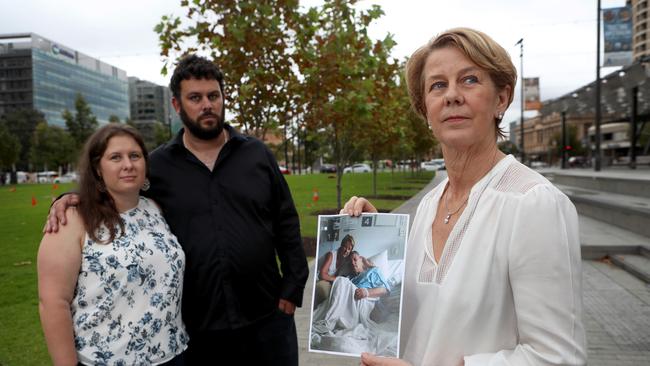Aged Care Royal Commission’s first public hearing in Adelaide begins
Home care package waitlists should be eliminated through an immediate cash injection to stop Australians “dying before their time”, National Seniors boss Professor John McCallum says.
SA News
Don't miss out on the headlines from SA News. Followed categories will be added to My News.
HOME care package waitlists should be eliminated through an immediate cash injection to stop Australians “dying before their time”, National Seniors chief executive John McCallum says.
Professor McCallum will today join Council of the Ageing boss Ian Yates and Oakden whistleblower Barb Spriggs in giving evidence at the aged care royal commission’s first public hearing in Adelaide.
Prof McCallum welcomed the $662 million home care package the Federal Government announced yesterday. It will enable at least 10,000 older Australians to get extra help to stay longer in their own homes. However, more than 120,000 Australians are on the home care package waitlist. South Australians wait the longest for care after being assessed.
“We have a very serious problem with not dealing with the waiting list, so we really need to push that as one of our most urgent issues,” Prof McCallum said.

He said it was imperative the Federal Government allocated enough money in the April Budget, instead of drip-feeding funding while the elderly waited for help.
“People are dying before their time and that has to be our focus,” he said.
Adelaide was the dubbed “ground zero” of the royal commission because of the Oakden scandal, which came to light after whistleblower Barb Spriggs raised the alarm about the mistreatment of her late husband Bob there.
Mrs Spriggs will be the first witness at the royal commission.
She said she would use the opportunity to help the aged care system move forward from past mistakes. She would touch on the experiences of other Oakden families, as well as her own, in the hope that elderly people received the care they deserved in future.

“There has to be a much easier pathway for people to be able to raise concerns when they have concerns,” Mrs Spriggs said.
“We need people who are passionate about their work, and able to understand the complexity of looking after people in aged care facilities.”
She will recommend more training and higher wages for aged care workers, support for cameras in nursing homes, and raise concerns about the accreditation system.
COTA has long argued for a more client-centric and consumer and family-controlled aged care system, with providers required to be much more transparent about quality issues, complaints, pricing and services. Consumers should be in control of residential care funds, COTA said.
The commission’s first public hearing will run from today to Wednesday, and resume next Monday.



